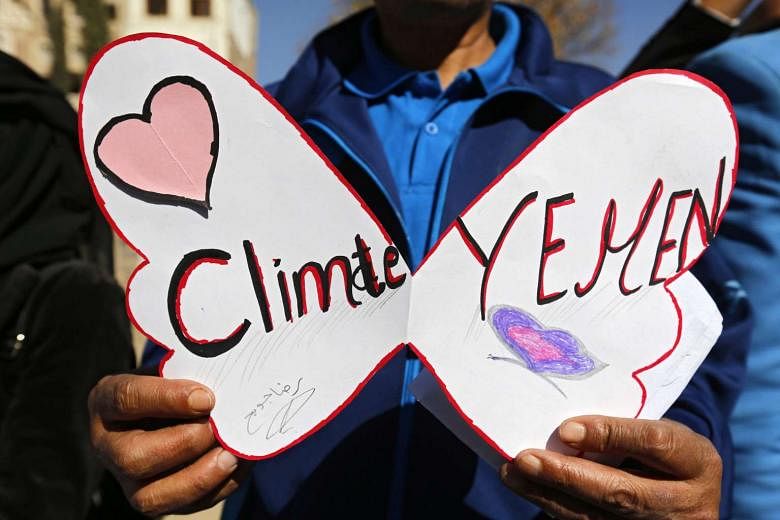PARIS • The world's 48 poorest countries will need to find around US$1 trillion (S$1.4 trillion) between 2020 and 2030 to achieve their plans to tackle climate change - and those plans should be a priority for international funding, researchers said.
Estimates based on plans submitted by the least-developed countries (LDCs) towards a new United Nations deal to curb global warming show they will cost some US$93 billion a year from 2020, when an agreement expected to be ironed out in Paris over the next two weeks is due to take effect.
That comprises US$53.8 billion annually to reduce emissions and US$39.9 billion to deal with more extreme weather and rising seas, according to a report from the London-based International Institute for Environment and Development (IIED).
IIED director Andrew Norton said the LDCs currently get less than a third of all international climate funding provided by wealthy governments. "A fair and effective deal at Paris should prioritise the investment of international public climate finance for this group to implement their climate action plans, while agreeing measures to help better-off countries attract private climate finance," he said in a statement.
The least-developed countries - from Ethiopia to Zambia, and Yemen and Pacific island nations - are home to some of the poorest communities who are suffering the worst impact of intensifying droughts, floods, storms and crumbling coastlines. Yet they produce just a tiny fraction of the planet-warming gases that drive climate change.
Such countries have a widespread lack of resources and expertise to tackle climate change. But all 48 have produced so-called Intended Nationally Determined Contributions (INDCs) to a new global climate deal. These plans set out how they will curb their emissions from 2020 - by shifting to renewable power sources, such as solar, or building cleaner public transport, for example. They also outline what countries need to do to help their people live better with the impact of climate change.
The IIED report said "all LDCs agree that fulfilling their INDCs cannot be done without a significant contribution from international climate finance, whether it be public or private".
The Paris talks are due to clarify how rich countries will mobilise a promised US$100 billion per year by 2020 to help poorer nations develop cleanly and withstand climate pressures, and set out a longer-term path for climate finance.
REUTERS

